- VAPT Services
- Web Application Security Testing
- Mobile Application Security Testing
- IoT Security Testing
- Network Penetration Testing
- Cloud Penetration Testing
- Source Code Review
- Threat Modeling
- Vulnerability Assessment
- Thick Client Application
- Wireless Security

Web Application Security Testing

Mobile Application Security Testing

IoT Security Testing

Network Penetration Testing

Cloud Penetration Testing
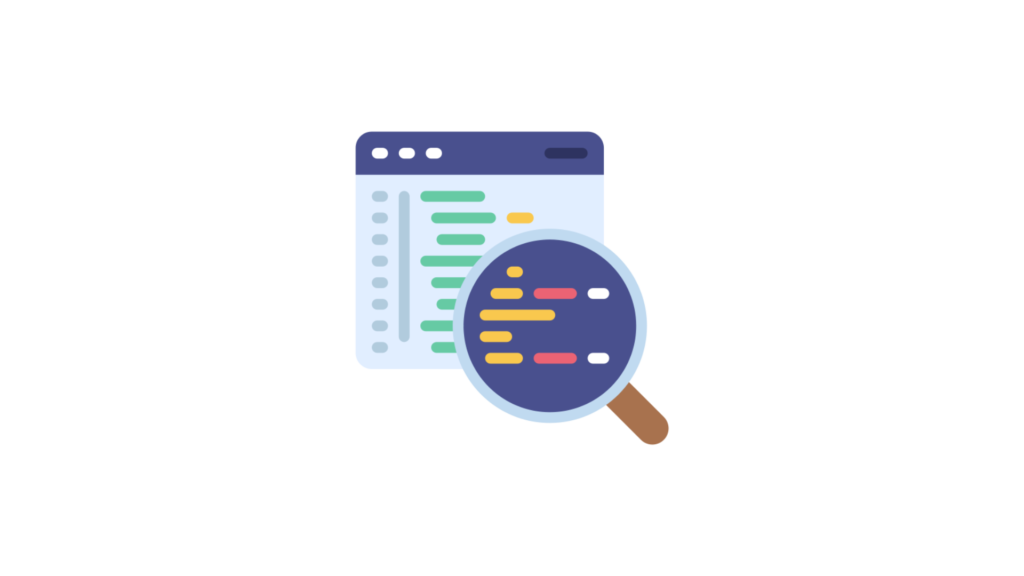
Source Code Review

Threat Modeling

Vulnerability Assessment

Thick Client Application

Wireless Security
- Compliance
- ISO/IEC 27001 Compliance
- HIPAA Compliance
- PCI DSS Compliance
- RBI Compliance Audit
- IRDAI Compliance Audit
- SEBI Compliance Audit
- SAR Compliance Audit
- BCP / DRP

ISO/IEC 27001 Compliance

HIPPA Compliance

PCI DSS Compliance

RBI Compliance Audit

IRDAI Compliance Audit

SEBI Compliance Audit

SAR Compliance Audit

BCP / DRP
- Solutions
- DevSecOps
- Digital Forensics
- Incident Response Planning
- Malware Analysis & Reverse Engineering
- Phishing Campaign
- Red Teaming

DevSecOps

Digital Forensics
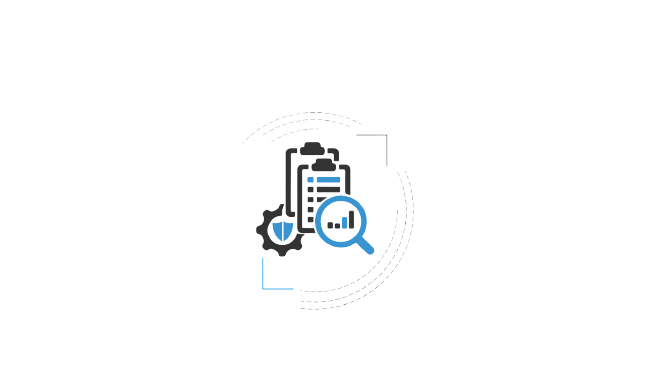
Malware Analysis & Reverse Engineering

Incident Response Planning

Phishing Campaign

Red Teaming
- Company

Company Overview

Careers

Our Team

Accreditations

Cyber Security Blog

Contact us
Now!
Talk To Our Cyber Expert For Free.
DevSecOps
Learn how Qunit services can help you to improve your development, security, and operations.





What is DevSecOps?
DevSecOps is a transformative approach that fuses three crucial domains: development (Dev), Security ( Sec), and operations (Ops). It’s not merely a methodology; it is a crucial shift in the way software is created, delivered, and maintained. The core principle is to integrate security into every phase of the software development lifecycle, from initial design to deployment and beyond.
METHODOLOGY
Our Approach to Development, Security, and Operations
At Qunit , we follow a comprehensive approach to integrate security seamlessly into the DevSecOps workflow. Our DevSecOps solution encompasses the following key components:
- 01. Continuous Security Monitoring
- 02. Security as Code
- 03. Automated Security Testing
- 04. Continuous Compliance
- 05. Collaborative Security Culture
We implement automated security testing and monitoring tools that provide real-time visibility into application security vulnerabilities and threats. This allows for early detection and remediation of security issues.
We help organizations incorporate security controls and best practices directly into the code, ensuring that security requirements are implemented from the initial stages of development. This includes secure coding practices, code analysis tools, and code review processes.
We leverage automated security testing tools to identify vulnerabilities, such as code flaws, misconfigurations, and known security weaknesses. This includes static application security testing (SAST), dynamic application security testing (DAST), and software composition analysis (SCA).
We assist organizations in ensuring compliance with relevant security and regulatory standards, such as GDPR, HIPAA, PCI DSS, and more. Our solution includes continuous monitoring, auditing, and reporting mechanisms to maintain compliance throughout the software development lifecycle.
We foster a culture of security awareness and collaboration among development, security, and operations teams. By promoting shared responsibility and knowledge sharing, we enable effective communication and cooperation to address security challenges.
Difference Between DevOps and DevSecOps
DevOps and DevSecOps are both approaches to software development and operations, but they differ in their primary focus and objectives
The primary difference between DevOps and DevSecOps is the inclusion of security as a core and continuous component of the development and operations process in DevSecOps. While DevOps seeks to streamline the software delivery process, DevSecOps goes further by prioritizing security from the outset, aiming to create a more secure software environment.
DevOps (Development and Operations)
- Focus: Primarily concentrates on improving collaboration and communication between development and IT operations teams. Its goal is to enhance the entire software delivery pipeline to achieve faster and more reliable software releases.
- Key Principles: Automation, collaboration, and continuous integration/continuous delivery (CI/CD) are key principles of DevOps. It emphasizes breaking down silos between teams, automating repetitive tasks, and ensuring that code moves seamlessly from development through testing and deployment to production.
- Security: While security is important in DevOps, it is not the central focus. Security considerations may be integrated into the DevOps process but often occur later in the pipeline.
DevSecOps ( Development, Security, and Operations)
- Focus: DevSecOps extends the DevOps approach by integrating security into every stage of the software development and delivery lifecycle. It places security at the forefront and aims to make security everyone’s responsibility.
- Key Principles: Incorporates security testing, vulnerability scanning, and compliance checks as integral parts of the CI/CD pipeline. It emphasizes shifting security left, meaning security considerations start early in the development process
- Security by Design: It promotes a security-by-design approach, where security measures are proactively built into the development process, rather than being added as an afterthought.
Benefits Of DevSecOps
It offers numerous benefits in modern software development.
- 1. Early Risk Mitigation
- 2. Faster Development
- 3. Improved Collaboration
- 4. Continuous Monitoring
- 5. Cost Savings
- 6. Compliance Assurance
- 7. Enhanced Customer Trust
- 8. Agility and Scalability
- 9. Reduced Downtime
- 10. Measurable Security
Integrating security into the development pipeline allows for early identification and mitigation of vulnerabilities, reducing the likelihood of security breaches.
Automated security testing and compliance checks streamline the development process, accelerating the release of secure software.
It fosters collaboration among development, security, and operations teams, ensuring shared responsibility for security.
Real-time monitoring and alerting enable proactive threat detection and rapid response to security incidents.
Addressing security issues early reduces the cost of fixing vulnerabilities in production.
Automated compliance checks help maintain adherence to industry standards and regulations.
Delivering secure software builds trust with customers and stakeholders, enhancing the organization’s reputation.
Its practices allow for the rapid scaling and adaptation of security measures as the development landscape evolves.
Fewer security incidents and quicker recovery times minimize service interruptions.
It enables the measurement of security metrics, facilitating data-driven improvements in the security posture.

The Importance of DevSecOps
It is the practice of integrating security into every phase of the software development and operations lifecycle holds immense importance in today’s technology landscape for several compelling reasons:
- Rapid Response: It facilitates real-time monitoring and alerting, allowing for proactive threat detection and swift response to security incidents, minimizing potential damage.
- Regulatory Compliance: Compliance with industry regulations and security standards is crucial for many organizations. It automates compliance checks, ensuring that software remains in line with these requirements.
- Enhanced Reputation: Secure software builds trust with customers and stakeholders, enhancing an organization’s reputation and brand image.
- Agility and Scalability: This practice allows for the rapid adaptation of security measures as the development landscape evolves. This agility is essential in today’s fast-paced digital world.
- Continuous Improvement: By measuring and monitoring security metrics, it facilitates data-driven improvements in security posture over time, leading to more resilient software.
- Reduced Downtime: With fewer security incidents and quicker recovery times, it minimizes service interruptions, ensuring a more reliable user experience.
- Competitive Advantage: Organizations that prioritize security in this method gain a competitive advantage by delivering more secure products faster than their competitors.
It aligns security with the speed and agility of modern software development, ensuring that security is an integral part of an organization’s culture and processes. Ultimately, it helps protect data, systems, and customer trust, which are essential for the success and longevity of any business.
Benefits

Enhanced Security

Improved Speed and Efficiency

Cost Optimization

Compliance and Risk Management
Get a DevSecOps quote
Expertise
Our Security Qualifications
Our team of ethical hackers and penetration testing service experts possess the skills and experience to identify the latest threats.

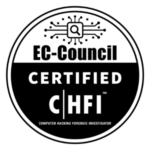




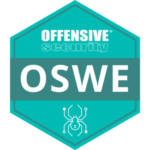
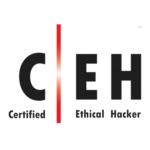
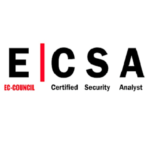
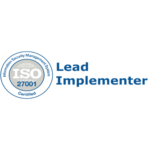
WHY US?
Why Choose Qunit Technologies?
At Qunit Technologies, we understand the critical role that security plays in the development process. We specialize in providing advanced services designed to empower your organization with the tools, practices, and expertise necessary for secure and agile software development.
Choosing Qunit Technologies as your partner in DevSecOps transformation is a strategic decision aimed at ensuring the highest level of security for your software products. Here’s why you should consider us:
- Proven Expertise : Our team of seasoned professionals brings years of experience and they have successfully implemented security measures across a wide range of industries and projects.
- Holistic Approach : We take a holistic approach, ensuring that security is not an afterthought but an integral part of your software development process.
- Cost-Efficiency : We help you reduce operational costs while enhancing security, making it a win-win situation for your organization.
- Scalability : Whether you’re a small startup or a large enterprise, our services are scalable to meet your specific needs. We tailor our solutions to accommodate your organization’s size and growth, ensuring security remains a top priority regardless of your scale.
- Continuous Improvement : We believe in continuous improvement and staying up-to-date with the latest security trends and technologies. Our commitment to ongoing education ensures that you benefit from the most current best practices in DevSecOps.
Get a quick quote
Frequently Asked Questions (FAQ) - related to DevSecOps
While DevOps focuses on the integration of development and operations teams to streamline software delivery, DevSecOps extends this approach by including security as an integral part of the process. DevSecOps emphasizes the importance of integrating security practices and tools throughout the entire software development lifecycle.
DevSecOps is important because it helps organizations proactively address security vulnerabilities in software applications. By incorporating security from the early stages of development, organizations can identify and mitigate risks before they become major issues, reducing the potential for data breaches and security incidents.
Implementing DevSecOps offers several benefits, including enhanced security, improved speed and efficiency of software delivery, cost optimization through early vulnerability detection, and better compliance and risk management.
DevSecOps promotes automation and collaboration among development, security, and operations teams, enabling faster and more efficient software development and delivery. By integrating security into the development process, potential security vulnerabilities are addressed early, minimizing delays caused by security issues later in the cycle.
Yes, DevSecOps practices can be applied to both new and existing software applications. While it may require some adjustments and modifications, integrating security into the development process of existing applications can help identify and remediate vulnerabilities and improve overall security.
DevSecOps practices encompass a range of security measures, such as secure coding practices, automated security testing (e.g., SAST, DAST), vulnerability management, continuous monitoring, and compliance enforcement. The specific measures implemented may vary based on the organization’s requirements and the nature of the applications being developed.
To get started with DevSecOps, it is recommended to assess your current development processes, identify security gaps, and define a roadmap for integrating security practices. Engage security, development, and operations teams in collaborative efforts, automate security testing and monitoring, and provide training to foster a security-focused culture.
Absolutely. DevSecOps practices can be implemented in cloud-based environments, leveraging cloud-native security tools and services. Cloud infrastructure offers flexibility, scalability, and automation capabilities that align well with DevSecOps principles.
DevSecOps supports compliance efforts by integrating security controls and best practices into the development process. By incorporating compliance requirements from the start, organizations can ensure that their software applications meet the necessary regulatory standards and reduce the risk of non-compliance.
Yes, DevSecOps can be applied in combination with various development methodologies, including Agile and Waterfall. The principles and practices of DevSecOps can be adapted to suit the specific needs and processes of the organization, regardless of the chosen development methodology.
